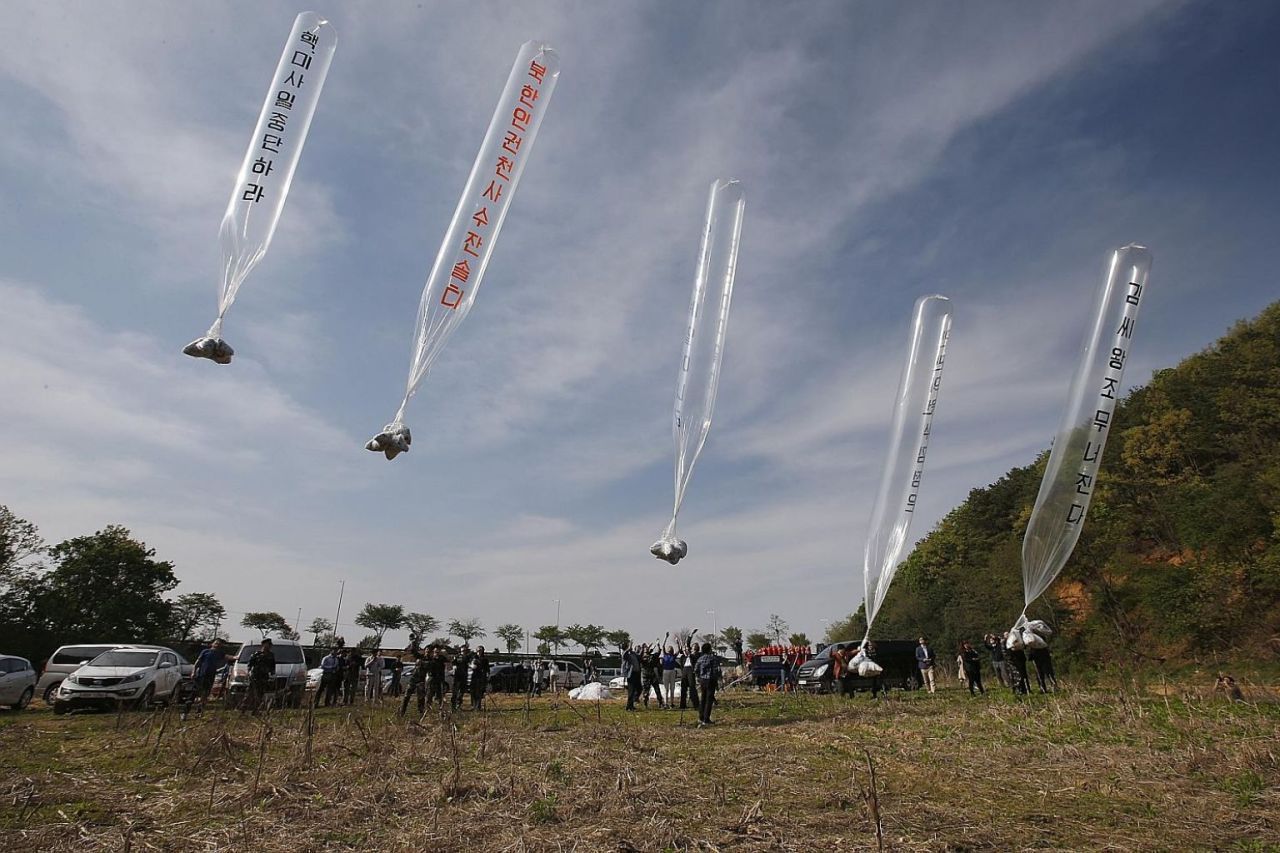 |
Civic groups run by defectors in South Korea send balloons containing anti-North Korea leaflets, along with food and medicine, near the inter-Korean border in Paju, Gyeonggi Province, April 2, 2016. (Yonhap) |
The unification ministry on Thursday said it will continue to maintain close communication with the international community on a recently legislated ban on sending anti-Pyongyang leaflets into North Korea after a UN special rapporteur voiced concerns over South Korea's decision, an official said.
Earlier, Special Rapporteur Tomas Ojea Quintana submitted a report to the UN Human Rights Council (UNHRC), expressing concern that the ban "limits many activities of escapees and civil society organizations" and that such limits "may not comply with" international human rights law.
"The government will put its utmost effort to ensure that the North Korean human rights situation is improved in cooperation with the UN and the international community, including the special rapporteur," a ministry official said.
The official dismissed concerns that Quintana's calls for "lowering limitations on freedom of communication" in the report could be referring to the revised law penalizing the sending of anti-Pyongyang propaganda leaflets into the North.
"Concerns have been raised that this could be referring to the Development of Inter-Korean Relations Act but this is nothing new. In 2019 and 2020, there were similar recommendations and this is a continuation of such," the official added, using the official name of the revised law.
The amendment has raised concerns among critics, including some US lawmakers, that it could hurt freedom of expression and undercut efforts to send outside information into the reclusive North.
The law, scheduled to take effect at the end of this month, prohibits the launch of anti-Pyongyang leaflets across the border, with violators subject to a maximum prison term of three years or a fine of 30 million won ($27,400). (Yonhap)




![[Herald Interview] 'Trump will use tariffs as first line of defense for American manufacturing'](http://res.heraldm.com/phpwas/restmb_idxmake.php?idx=644&simg=/content/image/2024/11/26/20241126050017_0.jpg)

![[Health and care] Getting cancer young: Why cancer isn’t just an older person’s battle](http://res.heraldm.com/phpwas/restmb_idxmake.php?idx=644&simg=/content/image/2024/11/26/20241126050043_0.jpg)

